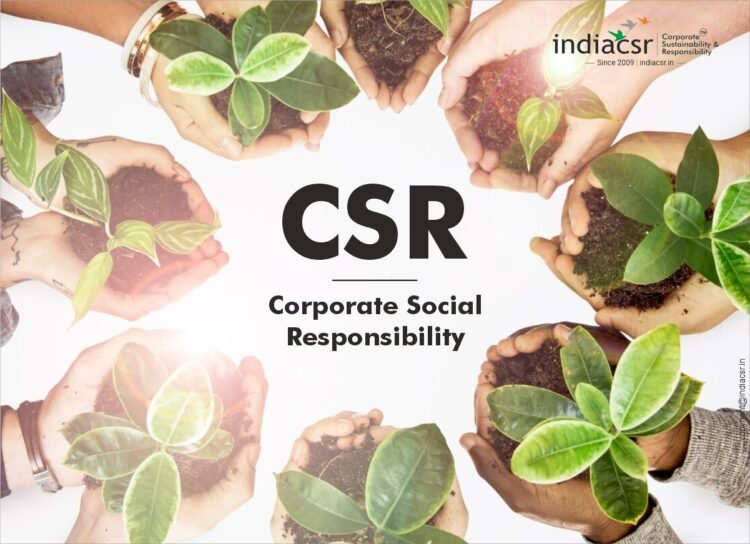Corporate Social Responsibility (CSR) refers to the voluntary initiatives that companies undertake to promote social welfare and environmental sustainability. It embodies the idea that businesses should integrate societal and environmental concerns into their everyday operations. While CSR is often seen as a voluntary approach, the Companies Act, 2013 (Section 135) mandates specific companies to allocate a defined portion of their profits towards CSR efforts.
When Does CSR Apply?
CSR regulations apply to any company that, during the previous financial year, meets any of the following criteria:
- Net worth exceeding ₹500 crore
- Annual turnover above ₹1000 crore
- Net profit over ₹5 crore
For such companies, the Board must ensure that a minimum of 2% of the average net profits (calculated over the last three financial years) is spent on CSR activities annually. If the company hasn’t completed three financial years, the calculation is based on the average profit made during the completed years.
***
Activities Eligible Under CSR – Schedule VII
Schedule VII of the Companies Act, 2013 outlines the specific activities that companies can undertake as part of their Corporate Social Responsibility (CSR) obligations. It serves as a guiding framework for companies to plan and implement CSR initiatives that align with the legal requirements under Section 135 of the Act.
📜 Purpose of Schedule VII
Schedule VII provides a list of approved areas where companies can spend their CSR funds. This ensures that the funds are used for socially relevant and impactful causes, contributing to the welfare of society and sustainable development.
✅ Permitted CSR Activities under Schedule VII
CSR activities must fall under the categories listed in Schedule VII of the Companies Act. Boards must ensure that CSR policies align with the following permissible domains:
- Eradicating Hunger, Poverty, and Malnutrition
Promoting health care (including preventive health care), sanitation, and making safe drinking water accessible. - Promoting Education
Includes special education and enhancing vocational skills for children, women, the elderly, and differently-abled people. - Gender Equality and Empowerment
Setting up homes, hostels for women, orphanages, old-age homes, and other facilities to reduce social inequalities. - Environmental Sustainability
Activities related to ecological balance, flora and fauna protection, afforestation, water conservation, and pollution control. - Protection of National Heritage, Art & Culture
Restoration of heritage buildings, promotion of traditional art and crafts, and establishing public libraries. - Welfare of Armed Forces Veterans and War Widows
Supporting dependents of veterans from armed forces, CAPF, and CPMF. - Promotion of Sports
Particularly rural, nationally recognized, Olympic and Paralympic sports. - Contribution to Central Government Relief Funds
Including PM National Relief Fund, PM CARES Fund, and other funds for socio-economic development. - Research and Development (R&D)
Contributions to incubators or R&D projects in science, technology, engineering, and medicine, funded by government bodies. - Support to Public Academic and Research Institutions
Including IITs, national labs, and organizations like DRDO, ICMR, CSIR for research promoting Sustainable Development Goals (SDGs). - Rural Development Projects
- Slum Area Development
Applicable in areas officially declared as slums by government authorities. - Disaster Management
Includes activities for relief, rehabilitation, and reconstruction post-disaster.
***
CSR Activities Not Permitted
According to Rule 2(d) of the CSR Policy Rules, 2014, the following cannot be considered valid CSR activities:
- Routine Business Activities: CSR funds can’t be used for activities aligned with a company’s regular business, except for specific R&D efforts related to COVID-19 (allowed under strict conditions from FY 2020–2023).
- Foreign-Based Initiatives: CSR funds must be used within India, except for training Indian athletes for international events.
- Political Contributions: Any direct or indirect contribution to political parties is disallowed under Section 182 of the Act.
- Employee-Focused Activities: CSR cannot benefit company employees directly, as defined by the Code on Wages, 2019.
- Marketing-Driven Sponsorships: Activities carried out mainly for advertising or promotional benefit are excluded.
- Statutory Obligations: Activities undertaken merely to comply with legal requirements under existing laws are not valid CSR.
Description
❌ Activities Not Covered Under CSR Contributions
While the Companies Act, 2013 mandates certain organizations to engage in CSR activities, the Ministry of Corporate Affairs has also laid down specific exclusions under Rule 2(d) of the CSR Policy Rules, 2014. These activities cannot be claimed as valid CSR spending:
1. Activities Related to Core Business Operations
CSR funds cannot be used for activities that fall within the regular business operations of the company.
Exception:
Companies involved in Research and Development (R&D) of new vaccines, drugs, and medical devices can conduct R&D activities specifically related to COVID-19 during the financial years 2020-21, 2021-22, and 2022-23, but under the following conditions:
- (a) The R&D work must be done in collaboration with any institute or organization listed in item (ix) of Schedule VII of the Act.
- (b) The company must disclose the details of such R&D activities separately in the CSR Annual Report included in the Board’s Report.
2. Activities Conducted Outside India
CSR initiatives must be carried out within the territorial boundaries of India.
Exception:
CSR funds may be used for the training of Indian sportspersons who are representing a State or Union Territory at the national level, or India at international sporting events.
3. Political Contributions
Any direct or indirect contribution made to political parties is strictly prohibited under CSR, as per Section 182 of the Companies Act, 2013.
4. Employee Benefit Activities
CSR funds must not be used for initiatives that benefit only the employees of the company.
This is defined in clause (k) of Section 2 of the Code on Wages, 2019.
5. Marketing and Sponsorship Activities
Companies cannot classify marketing-driven sponsorships—those done to promote the company’s products or services—as CSR. Activities conducted primarily for deriving brand or marketing benefits are not eligible as CSR spend.
6. Statutory Compliance
CSR funds cannot be used to fulfill any legal or regulatory obligations required under other existing laws in India. Activities carried out merely to meet compliance requirements do not qualify as CSR.
***
Penalties for CSR Non-Compliance
- Failure to Spend: Companies that do not spend at least 2% of their average net profits on CSR can face a penalty of twice the unspent amount or ₹1 crore, whichever is lower.
- Failure to Transfer Unspent Funds: If a company fails to transfer the unspent CSR amount to a designated CSR fund or its CSR Account, the penalty remains twice the due amount or ₹1 crore.
- Reporting Non-Compliance: Companies that fail to disclose CSR-related information in their Board’s report may be fined ₹3 lakh.
- Penalty Non-Payment: If penalties are not paid within the allowed timeframe, companies may face fines ranging from ₹25,000 to ₹5 lakh.
(India CSR)
📢 Partner with India CSR
Are you looking to publish high-quality blogs or insert relevant backlinks on a leading CSR and sustainability platform? India CSR welcomes business and corporate partnerships for guest posting, sponsored content, and contextual link insertions in existing or new articles. Reach our highly engaged audience of business leaders, CSR professionals, NGOs, and policy influencers.
📩 Contact us at: biz@indiacsr.in
🌐 Visit: www.indiacsr.in
Let’s collaborate to amplify your brand’s impact in the CSR and ESG ecosystem.























